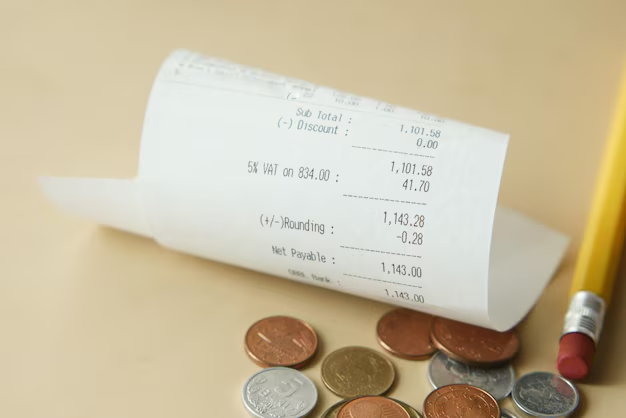Understanding Tennessee's Sales Tax: What You Need to Know
When shopping in Tennessee, whether you're picking up essentials or treating yourself to something special, the sales tax is always there at the checkout. This seemingly straightforward value can vary widely across items and locations, and understanding it can be a bit of a challenge. Let’s dive into the intricacies of Tennessee's sales tax, shedding light on its many aspects, to make your shopping experience smoother and more predictable.
A Brief Overview of Tennessee Sales Tax
Sales tax is a consumption tax imposed by the government on the sale of goods and services. In Tennessee, the sales tax is a combination of state and local taxes, making it crucial to understand where your money is going when you make a purchase.
State vs. Local Sales Tax
- State Sales Tax: Tennessee levies a base sales tax rate of 7% on most tangible personal property and some services.
- Local Sales Tax: Additional local sales taxes can be imposed by cities and counties, which range from 1.5% to 2.75%, bringing the total sales tax rate up to a potential 9.75%.
Important Note: Not all items are taxed equally, and there are specific nuances regarding exemptions and reduced tax rates for certain goods.
Items Subject to Sales Tax
In Tennessee, the majority of consumer goods are subject to sales tax. However, understanding which goods and services are taxed and at what rate can save you from unexpected costs.
Commonly Taxed Items
- Clothing: This includes everyday wear and accessories.
- Electronics: Phones, computers, and other personal tech items typically incur sales tax.
- Furniture and Home Goods: Most furniture and home-related purchases are taxed at the standard rate.
Special Cases and Exemptions
- Groceries: Tennessee applies a reduced tax rate of 4% on food for human consumption. Note that candy, dietary supplements, and prepared foods are taxed at the standard rate.
- Prescription Drugs: These are generally exempt from sales tax, providing relief on essential healthcare items.
- Certain Medical Equipment: Some durable medical equipment may also be exempt, subject to specific conditions.
Sales Tax Holidays in Tennessee
Tennessee offers sales tax holidays to ease the tax burden during certain times of the year. Let’s explore these exemptions and how you can benefit.
Typical Sales Tax Holidays
- Back-to-School Holiday: Typically happens in late July to early August, focusing on school supplies, clothing, and computers.
- Gun Safety Holiday: Generally in late August, focusing on gun safes and safety devices.
Shopping Tip: Plan your big-ticket purchases during these holidays to maximize your savings.
How to Calculate Sales Tax in Tennessee
Understanding how to calculate sales tax can help you budget more effectively. Here’s a step-by-step guide to calculating sales tax on any purchase:
- Determine the Total Sales Tax Rate: Combine the state rate (7%) with the local rate, which can be up to 2.75%.
- Calculate the Tax Amount: Multiply the total sales tax rate by the pre-tax cost of the item.
- Total Cost Calculation: Add the calculated tax to the original price of the item to get the total cost.
Example Calculation
- Item Price: $100
- Total Sales Tax Rate: 9.25% (state + local)
- Tax Amount: $100 x 0.0925 = $9.25
- Total Cost: $100 + $9.25 = $109.25
This calculation illustrates how sales tax can significantly affect the final purchase price, especially on higher-cost items.
Tennessee Sales Tax for Businesses
If you’re a business owner, understanding Tennessee’s sales tax has different implications. Businesses must comply with state and local tax laws, which include collecting and remitting sales tax accurately.
Sales Tax Registration
- Obtain a Sales Tax Permit: Businesses must register for a sales tax permit if they sell taxable goods or services.
- Collect and Remit Sales Tax: Businesses are responsible for collecting the appropriate sales tax from customers and remitting it to the Tennessee Department of Revenue.
Exemptions for Businesses
Understanding exemptions is vital as they can save businesses money:
- Resale Certificates: If you are purchasing goods for resale, you may qualify for a resale certificate, exempting you from paying sales tax on those purchases.
- Manufacturing: Certain machinery and raw materials used in manufacturing may be exempt from sales tax.
Key Business Tax Tips
📝 Record Keeping: Keep detailed records of all sales that show amounts of taxable sales, nontaxable sales, and sales tax collections. This ensures compliance and simplifies the filing process.
🔍 Stay Updated: Tax laws can change. Regularly review updates from Tennessee tax authorities to maintain compliance.
Visual Summary: Tennessee Sales Tax Essentials
Here's a quick reference guide to the key points about Tennessee's sales tax:
| Category | Rate/Rule |
|---|---|
| State Sales Tax Rate | 7% |
| Local Sales Tax Rate | 1.5% - 2.75% |
| Grocery Tax Rate | 4% |
| Sales Tax Holidays | Back-to-School, Gun Safety |
| Exemptions | Prescription drugs, certain medical equipment are exempt |
Tying It All Together
Navigating Tennessee's sales tax landscape can initially seem overwhelming, especially with varying rates and exemptions. However, understanding the basics of where and how sales tax is applied ensures you're prepared whether shopping or running a business. Remember, keeping abreast of sales tax holidays and exemptions can also provide significant savings. Armed with this knowledge, you can now approach your Tennessee purchases and business dealings with confidence.

Related Topics
- Can I Deduct Vehicle Sales Tax On My Federal Return
- Do Gross Sales Include Sales Tax
- Do I Need To Collect Sales Tax For Selling Online
- Do You Pay Sales Tax At The Dealership Or Dmv
- Do You Pay Sales Tax On a House
- Do You Pay Sales Tax When You Buy a House
- Does Alaska Have a Sales Tax
- Does Arizona Have Sales Tax
- Does Canada Have Sales Tax
- Does Florida Have Sales Tax
